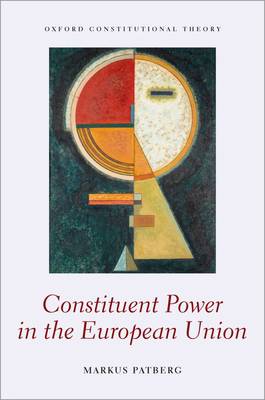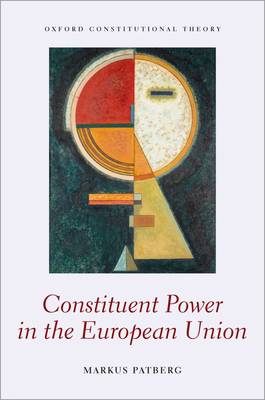
Door een staking bij bpost kan je online bestelling op dit moment iets langer onderweg zijn dan voorzien. Dringend iets nodig? Onze winkels ontvangen jou met open armen!
- Afhalen na 1 uur in een winkel met voorraad
- Gratis thuislevering in België vanaf € 30
- Ruim aanbod met 7 miljoen producten
Door een staking bij bpost kan je online bestelling op dit moment iets langer onderweg zijn dan voorzien. Dringend iets nodig? Onze winkels ontvangen jou met open armen!
- Afhalen na 1 uur in een winkel met voorraad
- Gratis thuislevering in België vanaf € 30
- Ruim aanbod met 7 miljoen producten
Zoeken
Omschrijving
The euro crisis, rising Euroscepticism, and Brexit have once again highlighted the European Union's unresolved legitimacy deficit. Increasingly, citizens claim to have been illegitimately excluded from decisions about the future of European integration. Movements such as DiEM25 call into question the authority of the states as the 'masters of the treaties'. At the same time, political theory's debate about the EU has become ever more academic. The discipline is preoccupied with the production and refinement of abstract models of democratic constitutionalism whose connection to real politics is thin. This book seeks to develop a new approach to EU legitimacy by reorienting the debate from the question of how the supranational polity should ideally be organized to the question of who is entitled to make that decision and how. To that end, it reformulates the classical notion of constituent power for the context of European integration. This account challenges conventional theoretical assumptions regarding the EU's ultimate source of legitimacy and enables political theory to put to the test the claims of those who challenge the established mode of EU constitutional politics.
Specificaties
Betrokkenen
- Auteur(s):
- Uitgeverij:
Inhoud
- Aantal bladzijden:
- 272
- Taal:
- Engels
- Reeks:
Eigenschappen
- Productcode (EAN):
- 9780198845218
- Verschijningsdatum:
- 28/01/2021
- Uitvoering:
- Hardcover
- Formaat:
- Genaaid
- Afmetingen:
- 157 mm x 236 mm
- Gewicht:
- 598 g

Alleen bij Standaard Boekhandel
+ 418 punten op je klantenkaart van Standaard Boekhandel
Beoordelingen
We publiceren alleen reviews die voldoen aan de voorwaarden voor reviews. Bekijk onze voorwaarden voor reviews.











